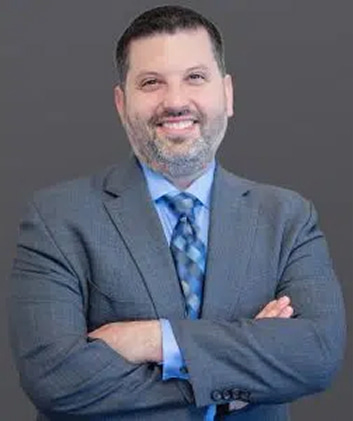Overview:
If you become incapacitated without an advance healthcare directive, Florida law decides who will make your medical decisions. This can result in someone you did not intend taking control, which may lead to family disputes or delays in care. In some cases, the court may appoint a legal guardian, adding unnecessary expense and stress. Creating an advance directive ensures that your care follows your wishes and helps your loved ones avoid confusion and conflict. Boca Raton Probate Attorneys helps you document those decisions clearly and legally.

A healthcare crisis can happen at any time. When it does, and you are unable to make decisions for yourself, someone must step in to communicate with doctors and authorize care. If you have named a healthcare surrogate through a valid advance directive, that person can act immediately. If you have not, Florida law decides who steps in.
That legal default may not match your wishes. It can lead to delays, family conflict, or court involvement when fast decisions matter most. Here, you’ll know who makes medical decisions if no directive exists, what happens during a guardianship case, and how the absence of planning can disrupt both your treatment and your estate.
Who Makes Decisions If You Don’t Have An Advance Directive
When you have no written directive in place, Florida law provides a default order for who may step in to make medical choices on your behalf. This list is used by hospitals and providers when no surrogate has been named and you are unable to speak for yourself. The priority order includes:
- Your spouse.
- Your adult child.
- A parent.
- An adult sibling.
- A close friend.
- A licensed social worker or adult care provider if no one else is available.
While this system can help in routine situations, it can also create problems. A spouse may be too emotionally overwhelmed to make difficult calls. Adult children may disagree or interpret your wishes differently. A trusted friend who knows your values might be sidelined entirely. The default rules focus on relationship category, not the strength of the relationship or how well someone understands your wishes.
What Happens When No One Qualifies Or Agrees
If no one on the statutory list is able or willing to act, or if those individuals cannot agree, the situation may escalate to guardianship. This is a formal legal process that begins when someone petitions the court to appoint a guardian to make decisions on your behalf. The process typically unfolds in the following steps:
- Someone files a formal petition with the court.
- A panel of professionals conducts an evaluation of your capacity.
- The court holds a hearing to decide whether you are legally incapacitated.
- If incapacity is confirmed, a guardian is appointed to act on your behalf.
This person may be a family member, but it could also be a professional guardian who does not know you at all. Guardianship may protect people who are vulnerable, but it is not a substitute for clear planning. It takes time, costs money, and can leave critical decisions in the hands of strangers.
Emotional & Financial Costs Of Guardianship
Guardianship proceedings can be emotionally draining for families. Even when everyone agrees that intervention is necessary, the process can be invasive and subject to strict court oversight. If relatives disagree about who should serve, the case may become contested and more difficult to resolve. Expenses involved in guardianship may include:
- Filing fees required to initiate the court process.
- Fees for court-ordered medical and psychological evaluations.
- Legal costs for both the petitioner and, in some cases, the person alleged to be incapacitated.
- Ongoing expenses related to mandatory reports and judicial monitoring.
- Compensation owed to the guardian, especially when a professional is appointed.
These costs are typically paid from your estate. In many cases, a properly executed advance directive can prevent the need for guardianship entirely.
What Can Go Wrong Without An Advance Healthcare Directive
Even without a major legal battle, the absence of a directive can trigger delays, confusion, and costly outcomes. Below are some of the most common consequences families face.
Family Disputes Over Medical Decisions
Even in close families, high-stress medical situations can lead to conflict. Without clear written instructions, loved ones may be left to make complex decisions with little direction. Confusion, disagreements, and emotional strain can quickly escalate.
Consider a situation where two adult children disagree about a recommended surgery. One believes it would honor your values, while the other sees it as unnecessary or harmful. If neither has legal authority, care may be delayed until the hospital receives a court order or some form of legal clarity.
These scenarios are avoidable. A signed advance directive gives one person clear authority to act, and it supports their decisions with your documented preferences.
Uncertainty Around End-Of-Life Care
Some of the most difficult choices arise at the end of life. Decisions involving life support, resuscitation, and artificial feeding are emotionally charged and legally complex. Even someone with legal authority may hesitate if your wishes were never discussed or recorded.
Without written guidance, care may continue far beyond what you would have chosen. Family members may feel uncertain, or they may disagree about what to do. An advance directive can prevent this by spelling out your wishes, reducing pressure on your healthcare surrogate, and ensuring your care reflects your values.
Delays & Complications During Probate
The absence of a directive affects more than just medical decisions. If no one has the authority to manage your financial matters while you are incapacitated, your family may be forced to petition for guardianship just to handle routine needs. If you pass away during that process, the added complexity can carry over into probate.
Frozen accounts, delayed insurance claims, and limited access to key financial records are common outcomes. The result is a longer and more expensive probate process. Coordinating your advance directive with other planning tools, such as a power of attorney, trust, or beneficiary designations, can prevent these setbacks and keep your estate administration on track.
What You Can Do Now
Planning ahead gives you control and peace of mind. If you have not created an advance directive, now is the time to act. Start by thinking carefully about who you trust to make medical decisions on your behalf. Choose someone who understands your values, communicates clearly, and is willing to carry out your preferences even under pressure.
Next, complete a written advance directive that names your chosen healthcare surrogate and outlines any specific instructions about your care. In Florida, this must be signed while you are mentally competent, in the presence of two adult witnesses. Only one of those witnesses may be related to you or involved in your care.
Once signed, provide copies to your surrogate, primary care physician, and anyone else involved in your estate or health planning. Store the original in a place that can be quickly accessed during a medical emergency. If anything changes, such as a move, divorce, or the death of a surrogate, review and update your directive right away.
How Boca Raton Probate Attorneys Can Help

Having an advance directive is not just about checking a box. It also helps make sure the people you trust can act when it matters most. Boca Raton Probate Attorneys helps individuals and families in Palm Beach County and across Florida create clear, enforceable healthcare directives that reflect their wishes and comply with the law.
We walk you through the process, help you select the right healthcare surrogate, and make sure your directive works with the rest of your estate plan. If you already have a document but are unsure whether it is valid or up to date, our team can review and revise it with you.
You deserve to have your voice heard, even when you cannot speak for yourself. With help from our team at Boca Raton Probate Attorneys, you can make that possible.




